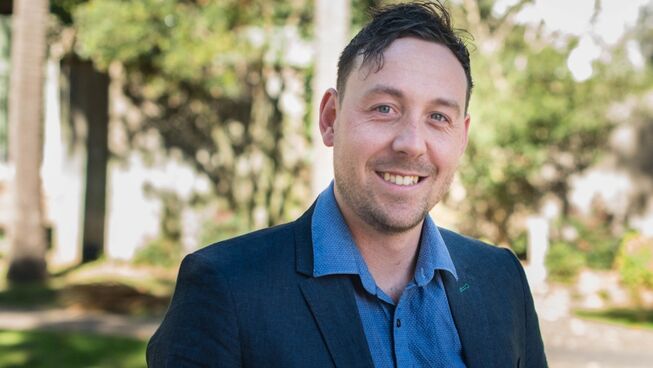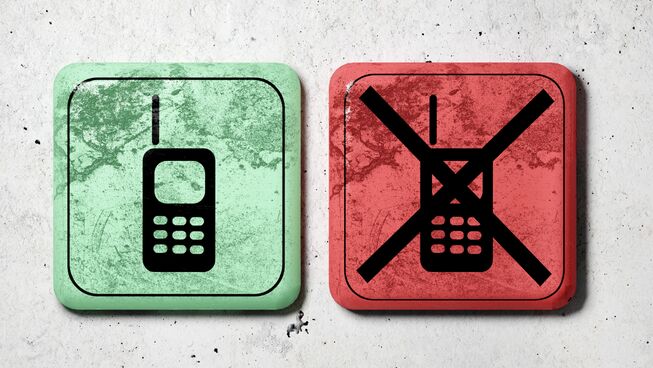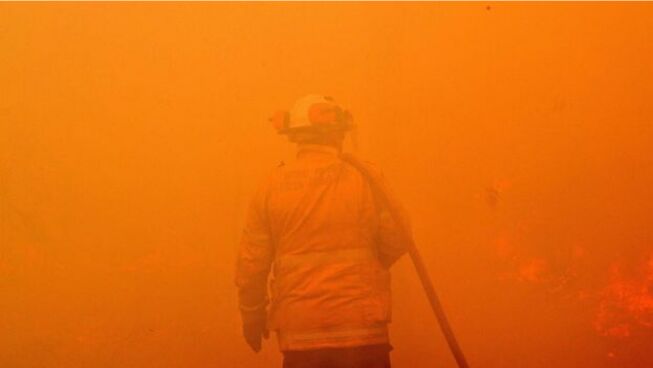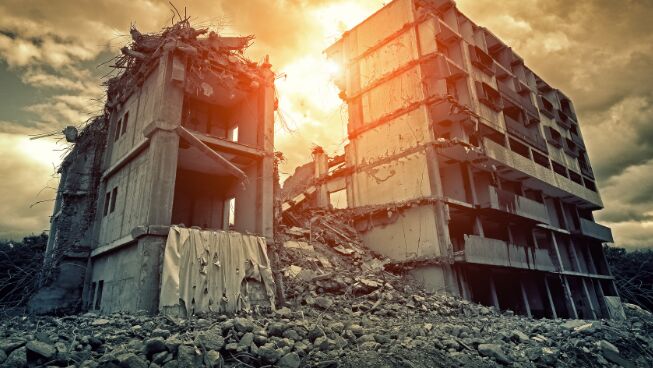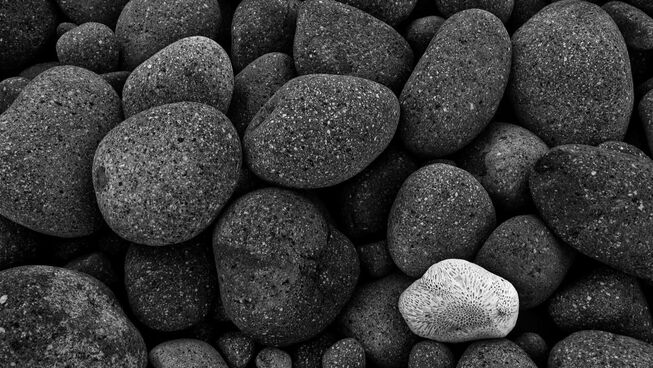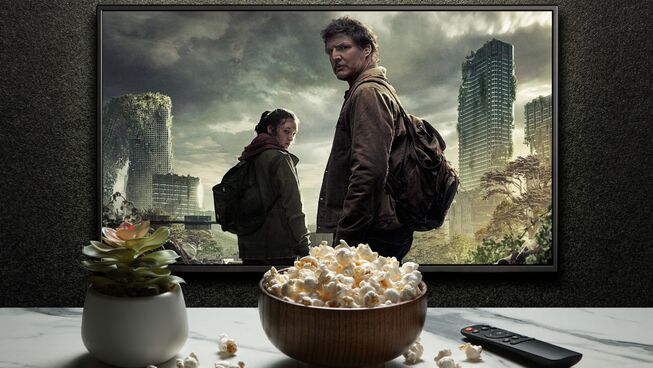
Image by Havana via Shutterstock
** Warning: Contains spoilers for The Last of Us Season 1.**
“How about that? A perfect ending to a near flawless series”
So writes Andy Welch from the Guardian following the completion of first series of the smash hit HBO series The Last of Us.
I, like many people, have been enthralled by the terrifying and uncomfortably not-that-farfetched-world crafted by Neil Druckmann (who created the game), Craig Mazin (creator of the series Chernobyl), and countless other talented people. A new word that encapsulates much of the setting is ‘wynorrific’; An eerie, yet visually stunning world where the green shoots of nature have not only reclaimed the cities and the landscapes, but have taken over human minds and bodies through a Cordyceps fungal infection that have adapted to climate change in the most horrifying way imaginable.
What’s left is a cross between Cormac McCarthy’s The Road and every zombie horror flick/game ever made, as the surviving remnants of people convince themselves that life is still worth living, despite the bleak, violent, and precipitous existence that forms everyday life.
Imagine being born into a world stripped of structure, system and form. Disorder and brutality rules; laws are ill-formed, loosely agreed on, and nigh impossible to enforce. Resources are few, the economy is primitive, mortality rates are at an all-time high. Your highest aspiration is survival, and your tribe is the closest thing you have to any semblance of security. No, I’m not describing a Libertarian's fantasy wedgie, but a return to a pre-civilised state of the world that The Last of Us (hereafter abbreviated as ‘TLOU’) spectacularly draws us into.
It’s a supercharged picture of the human struggle, where you have to be tough (“you show em’ Ellie”) and ruthless to make it. And yet, it’s still surprisingly meaningful, and even hopeful throughout the series, where ‘you just keep going, and find new things to fight for’, as Joel puts it in the finale.
And as a Christian I can’t help but reflect on the questions, the concepts and the quandaries that such a memorable show puts forward.
Now, I know what you’re thinking: *insert a violent, earth splitting collective groan* Not another cheesy attempt by some loser Christian trying to force connections where there are none. Why would you do that to my new favourite show??
But let me just add that the creators themselves explicitly invoke Christian symbolism regularly in their HBO companion podcast. Not only do they insert the cliché Christian preacher/paedophile/cannibal into the mix as a Rat-king supervillain representing the modern fear of Theonomists in the US. But, they even compare Kathleen’s lack of forgiveness with a certain Son of God. So, I feel like they grant someone like me an automatic right of reply, and invitation to partake in the wider conversation their show facilitates.
Competing Apocalypses
Undoubtedly there’s an undercurrent of theological, philosophical, and ethical musing throughout, but it’s not necessarily in the ways we would think. One angle that would presumably come to mind is the 21st century version of the apocalypse conversing with the classical apocalypse story that has shaped nightmares and for over 2000 years now. But as Christopher Star points out, modern apocalyptic fears are actually a return to the ancient (as in ancient Greek) ways of thinking about the end of the world. The cyclical nature of existence—where swings and roundabouts will thwart human progress eventually. Rather than a dramatic, definitive, universal reckoning, brought about directly by the hand of the Almighty—the cyclical apocalypse uses far more mundane means to end civilisation; A water shortage, a stray asteroid, an over-heated climate, a nuclear accident, some dude eating a bat, or an evolutionary jump from a fungus. All very reasonable options in an impersonal universe with no overarching meta-narrative, if that’s what you subscribe to.
It’s not so much the final judgement, fulfilment and end of history, but rather the continuation of history sans humans. i.e. the Universe will be just fine without us; less anthropocentric, more of a sunny nihilist disposition. But, having said that, TLOU still has plenty to say about the humans that have managed to hang in there.
The word apocalypse itself, literally means to uncover, reveal, lay bare, or disclose, and so perhaps 'eschaton' would have been a better choice by whoever made that decision in history. Anyway, TLOU does a great job of uncovering, revealing, laying bare, and disclosing the gamut of human experiences on the edge of survival. Of course there’s the self-interest, the mistrust, the betrayals, the grief, the barbarity, the unthinkable. But there’s also the solidarity, the salvaging, the taking of risks and soldiering on. The living in the moment, appreciating the wild, and preserving the people, ideas and things that matter. Whether it’s eating a fresh strawberry, dancing in the mall, or gunslinging through a hospital. There are things to live for—when hope is sparse. There are things to fight and kill for—to protect what’s left. And these are the driving forces and motivations that have very direct consequences in a deeply unstable world.
Introducing the Trolley Problem
Kathleen, whom I mentioned earlier, is a driven leader who leads a mutinous cohort to successfully overthrow the despicable reign of FEDRA in Kansas city. But her drivenness is also the very thing that leads to her downfall (and presumably the destruction of the entire city) when her blinded-by-rage-stubbornness trumps her better judgement, and she insists on hunting down a young African American collaborator and his deaf, leukaemia surviving 8 year old brother. They are responsible for the death of Kathleen's brother, when Henry is confronted with a decision that pits self-interest against the greater good (aka 'The Trolley Problem'). Their side story illustrates the collateral damage, and the ripple effects when people are forced to make difficult choices in even harder situations, Kathleen loses out, but then double-loses out when her lack of forgiveness is the thing that eats her alive long before the girl with the Blue’s-clues shirt, and a fungal face catches up to her.
TLOU is full of trolley problems, as people are forced to make life and death decisions in a world devoid of options. And it’s easy to forget that much of the ancient world, and even in the developing world today, people still face these kinds of decisions all the time in their ravaged communities. To not be confronted with a Trolley problem is an historical anomaly that we are more or less completely insulated against thanks to human progress and ingenuity which has dramatically transformed the world for many of us. The lawless world I described earlier is not too far from most of history if we take Norbert Elias’ The Civilising Process as an accurate depiction of human violence, hygiene and shame intentionally changing to serve the greater aristocracy, oops I meant greater good.
The first series of course closes with the most important trolley problem of all (in that world at least). Joel must choose between Ellie’s life and the future of humanity. Having not played the game, I went into the finale not knowing what the gamers knew, and after experiencing the ending I felt a mixture of numbness, loss, and second guessing myself, desperately hoping I’m never forced to make a horrible decision like that. Everyone’s a utilitarian until their sense of purpose is sitting in the cross hairs, or laying on the operating table. The ending was apparently quite polarising when the game came out in 2013. No doubt that debate has been re-kindled since. Neil Druckmann is a genius! Reflecting on the ending, he shared that he wanted everyone to feel what they’re going to feel, as long as they don’t feel ambivalent.
As these words crept into my temporal lobe, the ever-reliable, ol’ chestnut, cliché 'What Would Jesus Do' came bounding out of my amygdala. So let me indulge for a second in something that was apocalypsed to me. In a funny way, I think that Christianity actually subverts the trolley problem in a pretty profound way. And that is by God bringing about the real apocalypse. The real unveiling, disclosing etc… God reveals himself. By entering the world and then sacrificially allowing himself to be murdered a slave’s death. It’s gritty, it’s barbaric, it’s wynorrific. And it achieves both the greater good and the preservation of purpose through self-interest.
A Divine Trolley Response
Jesus obviously achieves the greater good by being a martyr and taking on the sin of the world. Anyone who believes can be saved, forgiven and redeemed by God, entering into ‘everlasting yays’ (aka the passage of scripture David reads in episode 8 where God will “wipe every tear from their eyes. There will be no more death or mourning or crying or pain, for the old order of things has passed away.”). A new world is possible thanks to the apocalypse of God; the death and resurrection of Christ.
But he also preserves his own purpose through self-interest by following God’s will, and being the promised messiah and King that the scriptures foretold. He goes down in history having written the 33rd greatest speech of all time (not salty at all), while also leading the world’s largest historical movement. He is honoured and sitting at the right hand of the Father, and promises a room for his peeps in his enormous, godly mansion (immune from RBA hikes too!).
Now it's not the same trolley problem, but it is even farther-reaching than Joel's decision in a Godless world. The question is, which is more farfetched? Jesus invites us into a universe where humility, selflessness, service, empathy, charity, sacrifice, and love-for-neighbour (rather than shooting your neighbour) are the compositional make-up of his new order. “The last shall be first and the first shall be last.” Qualities that would have no chance in a modern apocalyptic nightmare, or a pre-civilised society. As people that have benefited from history and, by pure chance, been born into a world that cherishes these values—values which are utterly incompatible with an eschaton event—it’s worth wondering why we care about them, or the trolley problem at all.
One thing is for sure though. I’m not ambivalent about it.
